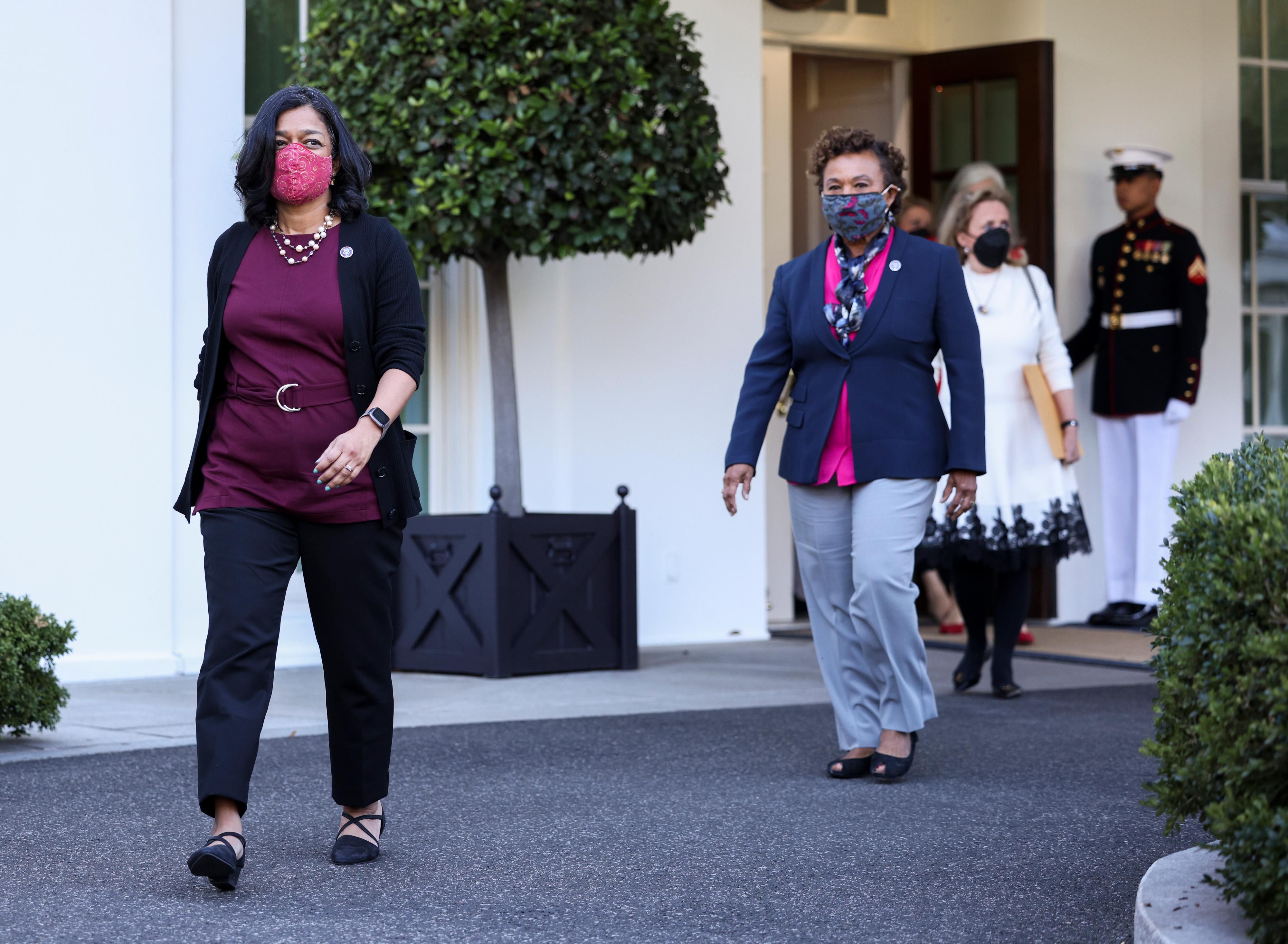"It's far past time we take our foreign policy into the 21st century," said Rep. Barbara Lee. "We should be leading with diplomacy and human needs as the path to global security."

BRETT WILKINS
Peace campaigners on Wednesday cheered a resolution introduced by progressive U.S. congresswomen Pramila Jayapal and Barbara Lee calling for a new American foreign policy that centers nonviolent solutions and eschews militarism and bloated Pentagon spending.
"It's time to put diplomacy and peace over militarism and war."
Speaking at a Wednesday online forum hosted by the peace group Win Without War, Japayal (D-Wash.), who chairs the Congressional Progressive Caucus, said the Foreign Policy for the 21st Century Resolution—which is co-sponsored by 17 House Democrats—"lays out a comprehensive framework for a U.S. foreign policy that emphasizes statecraft and diplomacy over military intervention."
In a statement, Lee (D-Calif.) said: "It's far past time we take our foreign policy into the 21st century. We should be leading with diplomacy and human needs as the path to global security."
Lamenting that half of the Pentagon's annual budget—which is $778 billion for 2022—goes to private contractors, Jayapal said that U.S. military spending "should not be for the purpose of enriching the shareholders of some of the largest corporations in the world."
Win Without War executive director Sara Haghdoosti welcomed the resolution with a statement asserting that "it's time for a new approach to foreign policy."
"Our foreign policy is broken," she continued. "For the past 20 years, we have waged multiple catastrophic wars, poured near-limitless resources into the bloated coffers of the Pentagon, sold billions of dollars in weaponry to repressive human rights abusers, and suffocated entire countries through broad-based sanctions."
According to Jayapal, the 21st-century foreign policy outlined in the new resolution:
Centers human dignity, social justice, and cooperation in United States foreign policy;
Supports the United Nations and other international institutions in responding to the most pressing needs of the global community;
Focuses domestic and international investments on equitable and inclusive solutions that empower individuals, workers, and communities while safeguarding human rights;
Prioritizes mitigating and resolving the harms created by historical security challenges through locally informed, locally led solutions and investments in diplomacy,
Puts forth a quick, bold, and effective response to the ongoing climate crisis that is threatening communities at home and abroad; and
Creates formal and informal processes to ensure that United States foreign policy is informed by poor people; racial, religious, and ethnic minorities; Indigenous people; women; people with disabilities; LGBTQ+ individuals; and youth.
Additionally, the measure calls for ending the use of economic sanctions, a practice that "too often feeds authoritarianism and corruption while disproportionately harming the most vulnerable" people in targeted nations.
"For decades, the military-industrial-think tank complex has succeeded in forging an American foreign policy based on military might, violence, and defense of multinational corporate interests," said Robert Weissman, president of the consumer advocacy group Public Citizen, which supports the resolution.
"This approach has been a miserable failure, for the United States and even more for the rest of the world," he added. "The Foreign Policy for the 21st Century Resolution would—finally—redirect American foreign policy to meeting people's needs, not those of military contractors and oil companies."
Lee, who in 2001 was the only member of Congress to vote against authorizing the so-called War on Terror, said that "the post 9/11 wars taught us that perpetual war takes countless lives, wastes trillions of dollars, and does not make us any safer."
She added that "to combat the challenges we face around the globe—like climate change, global health, and poverty—we should be investing our resources away from tanks and drones and towards the needs of people."
Our work is licensed under Creative Commons (CC BY-NC-ND 3.0). Feel free to republish and share widely.















